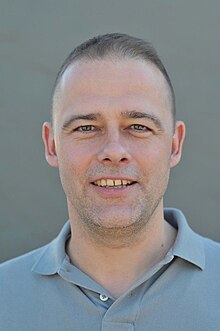
Niklaus Emil Wirth was a Swiss computer scientist. He designed several programming languages, including Pascal, and pioneered several classic topics in software engineering. In 1984, he won the Turing Award, generally recognized as the highest distinction in computer science, "for developing a sequence of innovative computer languages".

Butler W. Lampson FRS is an American computer scientist best known for his contributions to the development and implementation of distributed personal computing.

Gong Li, also known in English as Li Gong, is a Chinese businessman and computer scientist. He is CEO of Linaro, a British software company headquartered in Cambridge, UK, developing systems software for the Arm ecosystem. He was previously the founder and CEO of Acadine Technologies, a systems software company specializing in mobile operating systems for mobile, wearable, and IoT devices. Acadine’s core product H5OS was a web-centric operating system that was primarily based on the open web standard HTML5. It was derived from Firefox OS, whose development Li had overseen as President of Mozilla Corporation.

Bertrand Meyer is a French academic, author, and consultant in the field of computer languages. He created the Eiffel programming language and the concept of design by contract.

The Oberon System is a modular, single-user, single-process, multitasking operating system written in the programming language Oberon. It was originally developed in the late 1980s at ETH Zurich. The Oberon System has an unconventional visual text user interface (TUI) instead of a conventional command-line interface (CLI) or graphical user interface (GUI). This TUI was very innovative in its time and influenced the design of the Acme text editor for the Plan 9 from Bell Labs operating system.
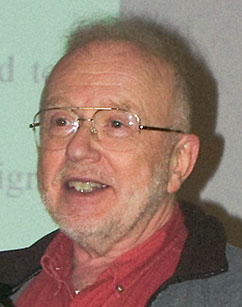
David Lorge Parnas is a Canadian early pioneer of software engineering, who developed the concept of information hiding in modular programming, which is an important element of object-oriented programming today. He is also noted for his advocacy of precise documentation.

Barbara Liskov is an American computer scientist who has made pioneering contributions to programming languages and distributed computing. Her notable work includes the introduction of abstract data types and the accompanying principle of data abstraction, along with the Liskov substitution principle, which applies these ideas to object-oriented programming, subtyping, and inheritance. Her work was recognized with the 2008 Turing Award, the highest distinction in computer science.

David Arthur Eppstein is an American computer scientist and mathematician. He is a distinguished professor of computer science at the University of California, Irvine. He is known for his work in computational geometry, graph algorithms, and recreational mathematics. In 2011, he was named an ACM Fellow.

The Donald Bren School of Information and Computer Sciences, also known colloquially as UCI's School of ICS or simply the Bren School, is an academic unit of University of California, Irvine (UCI), and the only dedicated school of computer science in the University of California system. Consisting of nearly three thousand students, faculty, and staff, the school maintains three buildings in the southeast section of UCI's undergraduate campus, and maintains student body and research affiliations throughout UCI.
Michael T. Goodrich is a mathematician and computer scientist. He is a distinguished professor of computer science and the former chair of the department of computer science in the Donald Bren School of Information and Computer Sciences at the University of California, Irvine.

Ueli Maurer is a professor of cryptography at the Swiss Federal Institute of Technology Zurich.
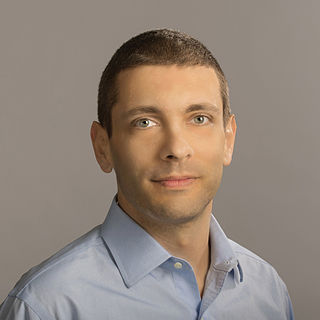
Andreas Gal is former chief technology officer at Mozilla. He is most notable for his work on several open source projects and Mozilla technologies.
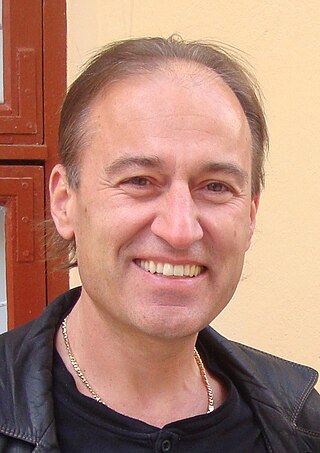
Markus Gross is a Professor of Computer science at the Swiss Federal Institute of Technology Zürich (ETH), head of its Computer Graphics Laboratory, and the director of Disney Research, Zurich. His research interests include physically based modeling, computer animation, immersive displays, and video technology. He has published more than 430 scientific papers on algorithms and methods in the field of computer graphics and computer vision, and holds more than 30 patents. He has graduated more than 60 Ph.D. students.

Hanspeter Pfister is a Swiss computer scientist. He is the An Wang Professor of Computer Science at the Harvard John A. Paulson School of Engineering and Applied Sciences and an affiliate faculty member of the Center for Brain Science at Harvard University. His research in visual computing lies at the intersection of scientific visualization, information visualization, computer graphics, and computer vision and spans a wide range of topics, including biomedical image analysis and visualization, image and video analysis, and visual analytics in data science.
Gene Tsudik is a Distinguished Professor of Computer Science at the University of California, Irvine (UCI).

Michael James Carey is an American computer scientist. He is currently a Distinguished Professor (Emeritus) of Computer Science in the Donald Bren School at the University of California, Irvine and a Consulting Architect at Couchbase, Inc..
Adrian Perrig is a Swiss computer science researcher and professor at ETH Zurich, leading the Network Security research group. His research focuses on networking and systems security, and specifically on the design of a secure next-generation internet architecture.
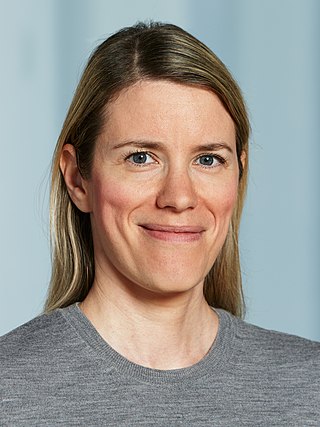
Olga Sorkine-Hornung is a professor of Computer Science at ETH Zurich working in the fields of computer graphics, geometric modeling and geometry processing. She has received multiple awards, including the ACM SIGGRAPH Significant New Researcher Award in 2011.
Mathias Payer is a Liechtensteinian computer scientist. His research is invested in software and system security. He is Associate Professor at the École Polytechnique Fédérale de Lausanne (EPFL) and head of the HexHive research group.
Hanspeter Mössenböck is an Austrian computer scientist. He is professor of practical computer science and systems software at the Johannes Kepler University Linz and leads the institute of systems software.
